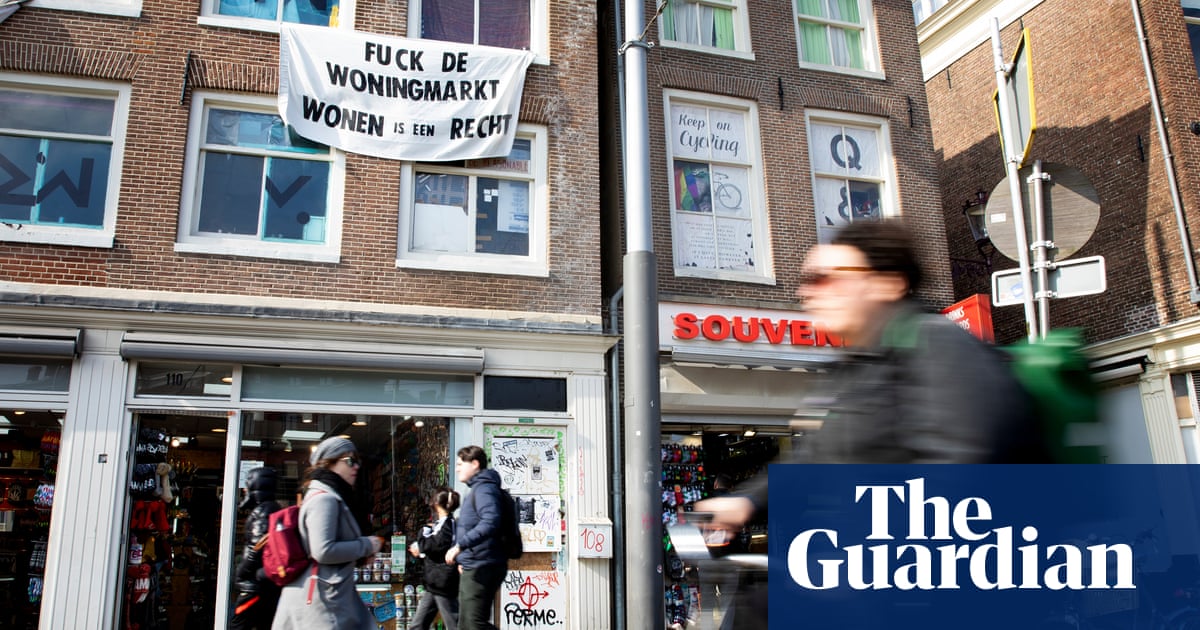Amsterdammers find themselves at the nadir of a Europe-wide housing shortage. But some bold initiatives offer hope
…
In a pan-European housing crisis, the Netherlands’ is next level. According to independent analysis, the average Dutch home now costs €452,000 – more than 10 times the modal, or most common, Dutch salary of €44,000.
That means you need a salary of more than twice that to buy one. Nationwide, house prices have doubled in the past decade; in more sought-after neighbourhoods they have surged 130%. A new-build home costs 16 times an average salary.
The rental market is equally dysfunctional. Rents in the private sector – about 15% of the country’s total housing stock – have soared. A single room in a shared house in Amsterdam is €950 a month; a one-bed flat €1,500 or more; a three-bedder €3,500.



Amsterdam is quite interesting with regard to homeownership at least, there are a bunch of rich old folks trying to push out the red light district from what I’ve heard.
Also, with Amsterdam it’s not even an issue of buying houses, that’s just unimaginable for most people, it’s paying rent that’s getting worse. I’ve also seen people with high pay being able to afford a place, but just not being able to rent since none are available.
And all this is with rent controls.
I’m sure there are plenty of unique factors. I was just making a snide remark about people who think that “just move” is an answer to every housing crisis, something I see far too often on Lemmy.
For the record, I was looking for places to buy in Rotterdam the other month, and what I found was that by and large, if you want to buy things inside the city limits, it’s either some weird mansion in the bougie foresty part, a 3 million EUR apartment where your garage is in the apartment, and you enter your place by car lift, or an entire fucking apartment block. People just don’t sell cheap apartments piecemeal.
The upside is that living in “the suburbs” which means moderately dense villages and towns near the big cities is doable, and you might be able to commute even without a car since public transport is mostly good.
Fully agree it’s a common refrain. And one I never understood. Even with my job where I can and do work fully remote, most of the places they always recommend have such terrible infrastructure I wouldn’t be able to do my job, DSL wouldn’t cut it.
Correct. it’s a very complex situation, which nobody wanted, yet here we are. And politically and judicial, both on regional, national and European level, there is no known simple solution.
What really triggered this mess was a court ruling regarding an environmental N0 ( nitro oxygen?) and a Co2 and smallparticle emission report not very long ago. That ruling gridlocked everything.